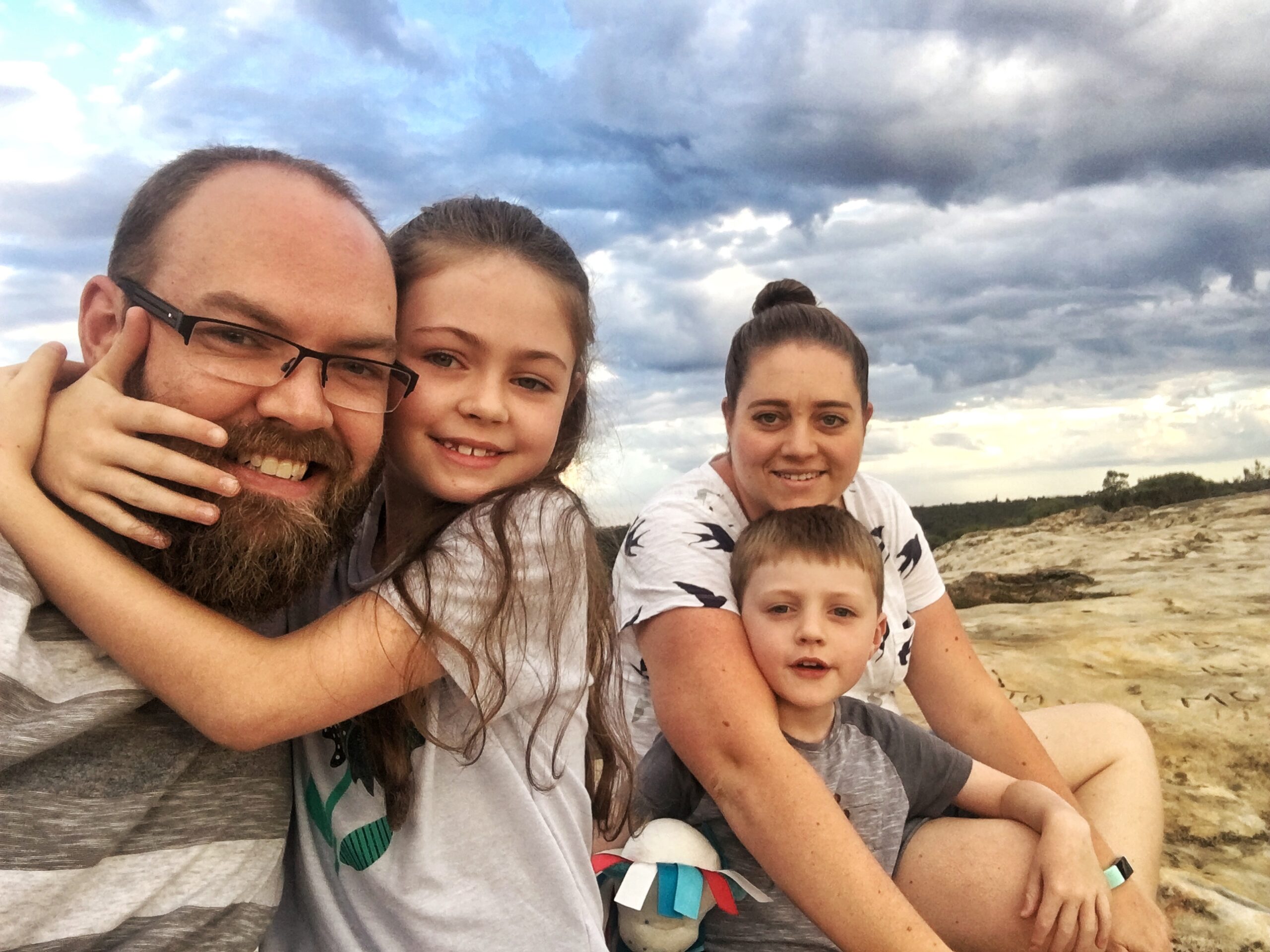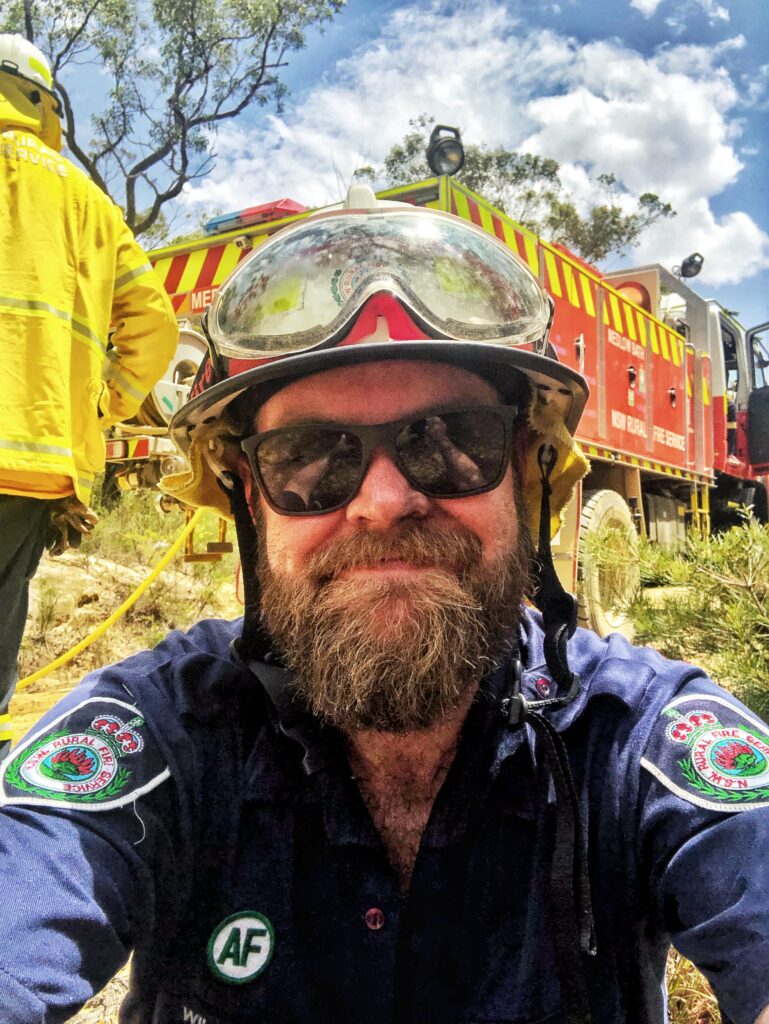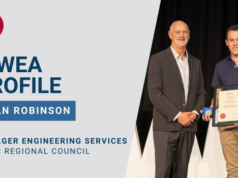William Barton credits a few conversations with his grandmother for putting him on the engineering path. Because things could have ended up quite differently otherwise.
The father of two had initially considered a career in professional photography, but his late grandmother asked him to consider what he enjoyed doing. He describes these conversations as his first career coaching session, aged 14.
While his grandmother hadn’t actually suggested William needed to pursue an engineering career, she said he should have a qualification to fall back on. His father was a solicitor and his mother a magistrate, so both understood the value of a tertiary education.
These conversations prompted him to consider more carefully what he truly enjoyed doing. He kept coming back to how much he loved playing in the creek behind his childhood home. “I was forever down the back, building dams and trying to make water act according to my will,” he recalls. “I realised that I always enjoyed those fundamental aspects of engineering.”
William grew up in the Blue Mountains near Sydney, where neighbours felt like family to him. “It was a really strong influence on my identity and what I found to be valuable in life. I was always looking for a role that allowed me to contribute back to my community.”

So, William sought out a few books to better understand what engineers and civil engineers did, prompting him to enrol at the University of Technology Sydney. He recalls a university lecture where a group of engineers who worked in local government presented, and he was hooked.
While still at university, he applied for a traineeship at the Junee Shire Council in regional New South Wales. One of the benefits of working in the country was the ability to work with the local water authority and other municipality services. “It was a small organisation, and there were lots of opportunities to do everything, from jump into the trenches beside the guys doing the works through to engaging with the community,” he says.
During these early years he was involved in the construction of a new sporting field and new amenities, feeding into his love of community work. “For a town of 6,000 people, these projects were a big deal, and I oversaw the bulk of the works,” he says.
William sank his teeth into a residential subdivision development, which involved constructing a stormwater detention basin. “With a little bit of finessing and some pretty robust conversations, we managed to get all parties, including state agencies, to agree to wrap it all up into one, with the fill from the basin to construct the soccer fields,” he says. “It was the first time I saw this idea of leveraging and piggybacking projects off one another to achieve more than one outcome.
“I remember the first game on those fields and hearing the community and mates of mine talking about what a difference it was making, and how the kids were able to see this possibility of actually playing a sport they loved in their own town again. It really stirred something inside me.”
Commitment to his community
In 2018, William and his wife, Nicole, wanted to return to the Blue Mountains. He was offered a role with the City of Canterbury Bankstown, rising to his current role of Executive Manager. Stakeholder engagement with issues that have been escalated up the organisation fall in his remit in a role that blends engineering, communication and customer service.
He uses his engineering knowledge to work out problems. He acknowledges it’s been challenging to keep projects and resolutions moving during COVID-19, particularly during shutdowns.
His commitment to serving his community also extends to volunteering with the Rural Fire Service (RFS) for the last 20 years. “I love being in a role where I’m protecting the community,” he says.
He doesn’t even mind preparing fire lines, recalling a day where he was clearing scrubland with rakes, brush cutters and chainsaws on a 37-degree day with 40 others. “It’s hard, back-breaking work,” he says. “But none of us had any uncertainty or questions over what we were doing. We understood the purpose of what we were doing. We understood the bigger picture of what we were achieving.”

His training and experience were put to the test earlier this year during the Black Summer bushfires. “It was very traumatic for a lot of people. We saw things happen that hundreds of years of combined lived experience by our older members said couldn’t happen. Flames 25 metres high, coming at us at 2am, hours after a southerly had pushed through. These are images that stay with you.
“We were overrun with fire. We almost lost homes. For me, it was the first time I was put in the position of having to decide whether we attempt to save someone’s properties or not. It was confronting. Being on the spot and making the decision of saving one house over another because we don’t think it’s possible was gut-wrenching.”
He likens the benefits of his IPWEA membership to the sense of community he enjoys with the RFS. He was taken along to his first meeting two weeks into his traineeship as a junior engineer by his director. “I started developing connections with engineers throughout the area and their staff, which meant that suddenly I had access to people in the same boat as me. A new community. I loved it.
“These people are enthusiastic about their experiences and their knowledge. I was able to lean on that network quite heavily, learning and bouncing ideas and sharing issues. It has been very valuable for me. It’s always been a very safe network of like-minded people.”
William has also sought to give back to the Institute, first driving the Young IPWEA initiative and having now been returned to the NSW Board for a third term, first as Vice-President, as well as a current director with NAMS Canada. He has just finished a term on the Australasian board.
He is also committed to raising awareness of men’s health, walking 60 kilometres this month for Movember, which represents the number of men who suicide across the globe every hour. It’s further evidence William is still a man on a mission.














